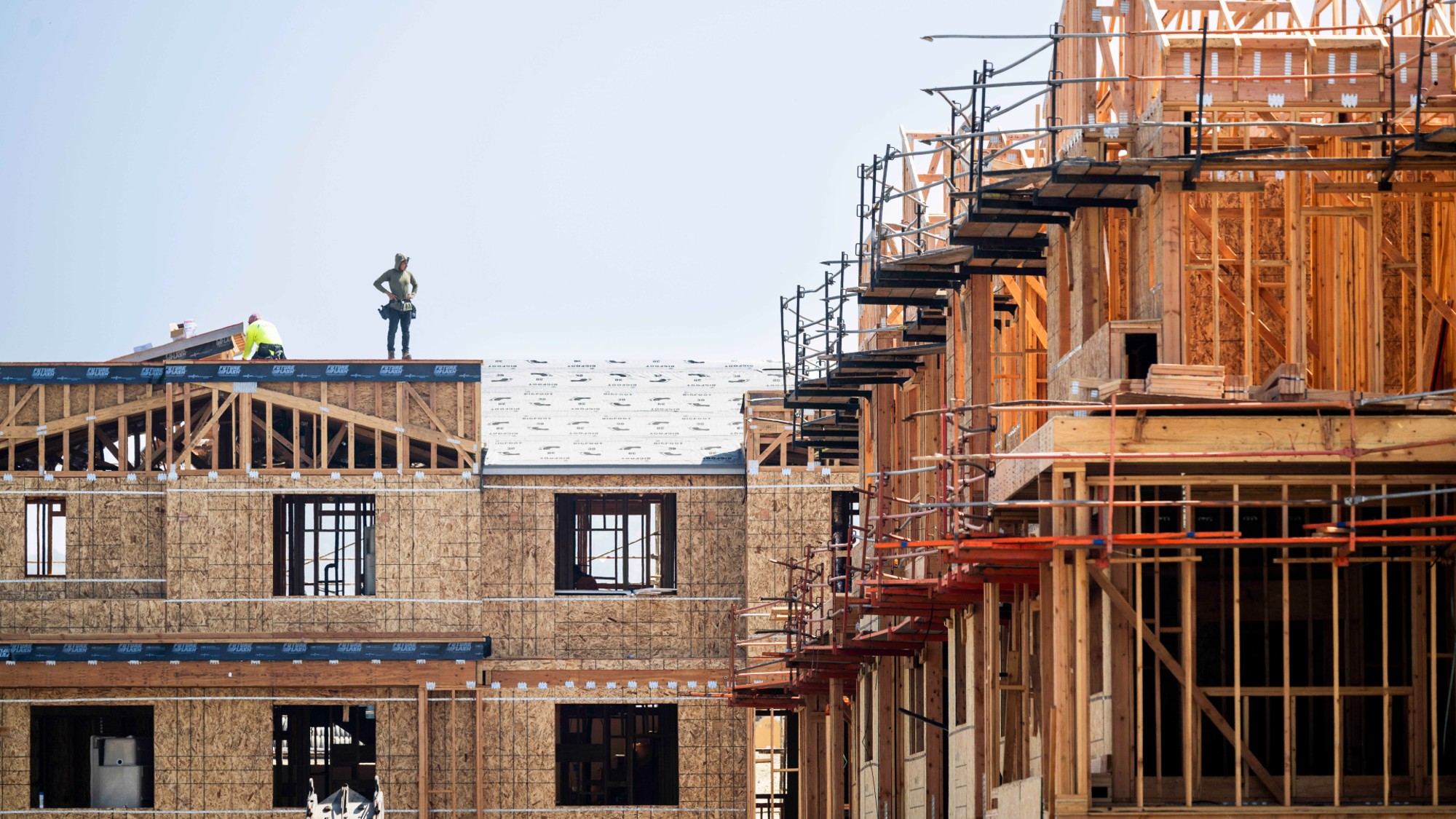Trump blames migrants for the housing crisis. Experts aren't so sure.
Migrants need housing. They also build it.


A free daily email with the biggest news stories of the day – and the best features from TheWeek.com
You are now subscribed
Your newsletter sign-up was successful
Is the influx of migrants across America's southern border responsible for the country's housing shortage? Donald Trump and J.D. Vance think so. A lot of experts disagree.
Trump and Vance say that housing costs are a "reason to crack down on immigration," said Reuters. Immigration is "driving housing costs through the roof," Trump said at an Arizona rally. That combines the former president's top issue with the concerns of voters: One poll shows that housing costs are the second-highest economic concern for the electorate. It's "basic supply and demand," added Kari Lake, the GOP candidate for Senate in Arizona.
But the link between immigration and the housing crisis "isn't as obvious as it seems," said Axios. Because the construction industry is staffed in significant part by migrant workers, immigration "simultaneously increases demand for housing and supply." What's more, the timing doesn't line up: The steepest increases in rents and home prices "came before the recent surge of immigration," Axios said.
The Week
Escape your echo chamber. Get the facts behind the news, plus analysis from multiple perspectives.

Sign up for The Week's Free Newsletters
From our morning news briefing to a weekly Good News Newsletter, get the best of The Week delivered directly to your inbox.
From our morning news briefing to a weekly Good News Newsletter, get the best of The Week delivered directly to your inbox.
Government 'get out of the way'
"Immigrants are people who want roofs over their heads," Alex Nowrasteh said for the Cato Institute. The supply of homes is "inelastic" largely because of government regulations like zoning and urban growth boundaries, which means that migrants create higher demand that will usually "drive up prices and the quantity of housing." The best solution? Government should "get out of the way," Nowrasteh said, and allow housing supplies to easily increase when demand rises. Until then, "it is safe to say that immigrants increase housing prices in the United States."
"Corporate greed is the real culprit," Jessica Washington said at The Intercept. "Corporate landlords" and developers have used lax regulations and algorithm-based tools to "spike rents, snatch up homes from working families, and block tenants from demanding reasonable changes to our housing system," said Alia Trindle of Right to the City Action. The housing crisis is the result of "longstanding systemic problems," not migration.
"In the long run, immigrants are the solution to the housing crisis," Wharton School's Exequiel Hernandez told The New York Times. Foreign-born workers make up a quarter of the construction industry workforce. Without immigrants, Hernandez said, "you can't increase the supply of housing."
Deportations mean 'fewer construction jobs'
The mass deportations advocated by Trump "would lead to a widespread economic downturn," the American Immigration Council's Aaron Reichlin-Melnick said at MSNBC. The impact would be concentrated in industries like construction. Wouldn't those workers just be replaced by American citizens? "The data suggests that is not true," Reichlin-Melnick said. The industry already has a labor shortage even though it pays high wages. Deportations would mean the "closure of firms and fewer construction jobs, period."
A free daily email with the biggest news stories of the day – and the best features from TheWeek.com
"Housing affordability is hovering near record lows," Augusta Saraiva said at Bloomberg. There is already a shortage of 7 million rental units. That means whoever wins the presidential race "better have their blueprints with them." Depopulating the construction industry won't help. "It's going to take a lot of labor to build away the crisis."
Joel Mathis is a writer with 30 years of newspaper and online journalism experience. His work also regularly appears in National Geographic and The Kansas City Star. His awards include best online commentary at the Online News Association and (twice) at the City and Regional Magazine Association.
-
 ICE eyes new targets post-Minnesota retreat
ICE eyes new targets post-Minnesota retreatIn the Spotlight Several cities are reportedly on ICE’s list for immigration crackdowns
-
 How did ‘wine moms’ become the face of anti-ICE protests?
How did ‘wine moms’ become the face of anti-ICE protests?Today’s Big Question Women lead the resistance to Trump’s deportations
-
 The UK expands its Hong Kong visa scheme
The UK expands its Hong Kong visa schemeThe Explainer Around 26,000 additional arrivals expected in the UK as government widens eligibility in response to crackdown on rights in former colony
-
 How are Democrats trying to reform ICE?
How are Democrats trying to reform ICE?Today’s Big Question Democratic leadership has put forth several demands for the agency
-
 Minnesota’s legal system buckles under Trump’s ICE surge
Minnesota’s legal system buckles under Trump’s ICE surgeIN THE SPOTLIGHT Mass arrests and chaotic administration have pushed Twin Cities courts to the brink as lawyers and judges alike struggle to keep pace with ICE’s activity
-
 Big-time money squabbles: the conflict over California’s proposed billionaire tax
Big-time money squabbles: the conflict over California’s proposed billionaire taxTalking Points Californians worth more than $1.1 billion would pay a one-time 5% tax
-
 ‘The West needs people’
‘The West needs people’Instant Opinion Opinion, comment and editorials of the day
-
 700 ICE agents exit Twin Cities amid legal chaos
700 ICE agents exit Twin Cities amid legal chaosSpeed Read More than 2,000 agents remain in the region



